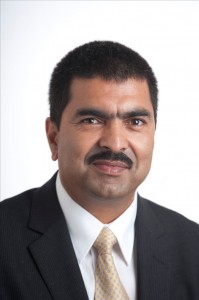Praveen Kumar Yadav, team coordinator for ELT Choutari, had a chit-chat with successful Nepali ELT mentors, Ganga Ram Gautam, Reader in English Education at Tribhuvan University and Dr Laxman Gnawali, Associate Professor at Kathmandu University School of Education, who are not only involved in English Language Teaching, but they has also been mentoring ELT practitioners over one and a half decade. This chat with the ELT mentors and experts delves into the tradition, practice cultural variations, and existing perception and attitude toward mentoring with reference to their own mentoring experience. Please enjoy this insightful conversation with these experts.
Choutari: Could you please briefly talk about mentorship culture in Nepalese context? How do students and teachers in Nepal perceive mentoring?
Gautam:

Mentorship is not a new concept in Nepal. Mentorship was an excellent way of building capacity of a person in the Gurukul education system and it continued for a long time in the tradition. Similarly, helping the young ones by the senior was in-built in our cultural system and the metaphor that we often used for mentorship is पन्थेदाउने which means training the novice person by engaging them in the work under the supervision of the seniors.
Currently, the western education system gave it a new name and it is being discussed in the education discourse. Informally, mentoring is there but at the formal level, it is not very widely used.
Gnawali:

Nepalese society had a tradition of mentoring model of education and training until the modern schooling system started for the public in the 1950s. Whether it was about the skills of family occupation and family crafts or the art of war, the experienced ones used to pass down the skills to the young generation by way of mentoring. Take for example a daughter learning to weave paddy straw mat or a tailor’s a children learning to stitch clothes or a priest’s son learning to perform rituals or a young prince learning the tactics of rule. In all cases, the knowledge transfer took place in the mentoring model. Later, the modern schooling system introduced mass education and the mentoring was no longer practicable for most trades. The teaching and learning now embraced cascade model.
From my interactions with the teachers and students, I have gathered that mentoring is not a common practice in the formal education. Though the traditional skills transfer still continues in the mentoring model, stakeholders of the mainstream education are happy to see the cascade model of knowledge transfer function. Ironically, teacher education in which mentoring model would make a difference follows a straight cascade model except in a very few cases.
Choutari: Kindly share with Choutari readers any of your mentoring experience (as a mentee) that you think has added values to your life.

